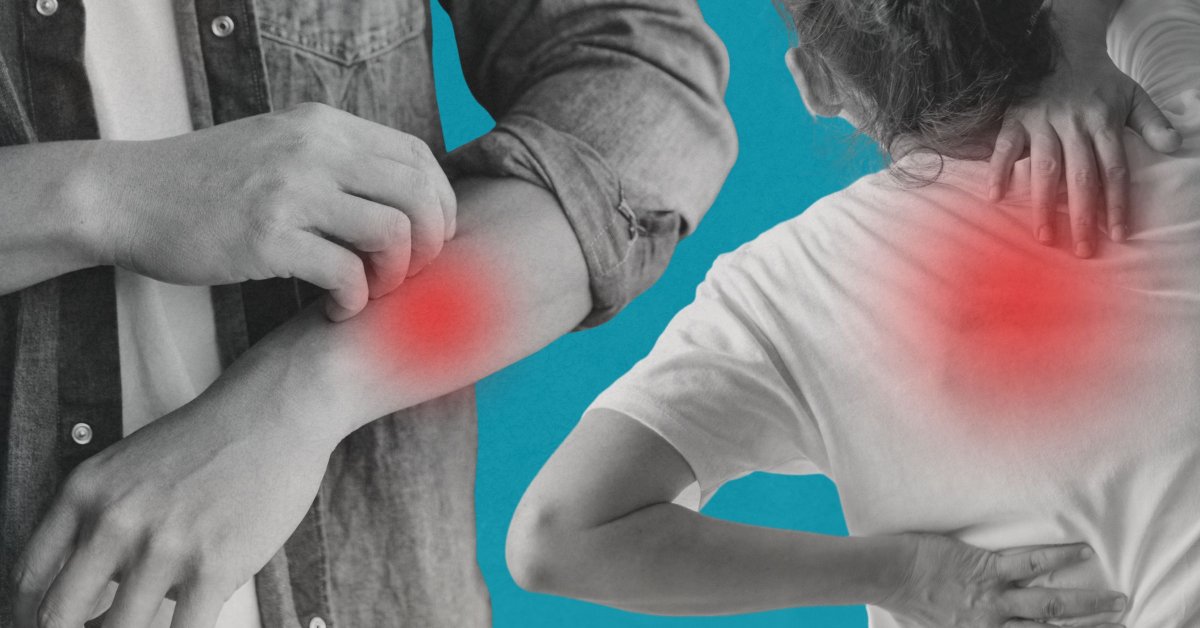Top 10 Emergency Symptoms: A Doctor's Guide To When To Go To The ER

Welcome to your ultimate source for breaking news, trending updates, and in-depth stories from around the world. Whether it's politics, technology, entertainment, sports, or lifestyle, we bring you real-time updates that keep you informed and ahead of the curve.
Our team works tirelessly to ensure you never miss a moment. From the latest developments in global events to the most talked-about topics on social media, our news platform is designed to deliver accurate and timely information, all in one place.
Stay in the know and join thousands of readers who trust us for reliable, up-to-date content. Explore our expertly curated articles and dive deeper into the stories that matter to you. Visit Best Website now and be part of the conversation. Don't miss out on the headlines that shape our world!
Table of Contents
Top 10 Emergency Symptoms: A Doctor's Guide to When to Go to the ER
Knowing when to seek emergency medical care can be the difference between a minor inconvenience and a life-threatening situation. While a quick trip to urgent care might suffice for a sprained ankle, certain symptoms demand immediate attention at the Emergency Room (ER). This article, written in consultation with medical professionals, outlines the top 10 emergency symptoms that require immediate ER visit. Don't delay – your health is paramount.
Understanding Emergency Severity:
Before diving into the list, it's crucial to understand that this guide is for informational purposes only and does not replace professional medical advice. Always err on the side of caution. If you're unsure whether a symptom warrants an ER visit, contact your doctor or utilize a telehealth service for guidance. Remember, time is often critical in emergency situations.
Top 10 Emergency Symptoms Requiring Immediate ER Attention:
-
Severe Chest Pain or Pressure: This is a classic indicator of a heart attack or other serious cardiac event. Accompanying symptoms like shortness of breath, sweating, nausea, or dizziness further emphasize the need for immediate medical attention. Do not delay; this is a life-threatening emergency.
-
Sudden, Severe Headache: A sudden, intense headache, especially accompanied by fever, stiff neck, confusion, vision changes, or numbness, could signal a stroke, brain hemorrhage, or meningitis. These conditions require rapid diagnosis and treatment.
-
Shortness of Breath (Dyspnea): Difficulty breathing, especially if sudden or severe, can indicate a variety of serious conditions including pulmonary embolism (blood clot in the lung), pneumonia, asthma attack, or heart failure. Seek immediate medical assistance if you are struggling to breathe.
-
Severe Allergic Reaction (Anaphylaxis): Symptoms such as difficulty breathing, swelling of the face, lips, or tongue, hives, and dizziness require immediate medical attention. Anaphylaxis is a life-threatening allergic reaction that needs prompt treatment with epinephrine.
-
Severe Bleeding: Uncontrollable bleeding, particularly from a deep wound or internal bleeding (indicated by signs like dizziness, weakness, or rapid pulse), requires immediate ER care to stop the bleeding and prevent blood loss.
-
Sudden, Severe Abdominal Pain: Intense abdominal pain, especially if accompanied by fever, vomiting, or bloody stools, could indicate appendicitis, a ruptured ectopic pregnancy, or internal bleeding. Delaying treatment can have serious consequences.
-
Severe Burns: Large or deep burns require immediate medical attention to prevent infection and manage pain. Assess the burn's depth and size, and seek emergency care if it's extensive or deep.
-
Loss of Consciousness (Syncope): Fainting or loss of consciousness, especially if unexplained, can be a sign of a serious underlying medical condition, such as heart problems, low blood sugar, or neurological issues.
-
Seizures: Prolonged or repeated seizures, or a first-time seizure, requires immediate medical evaluation to determine the cause and prevent further complications.
-
Severe Trauma (e.g., Car Accident): Any significant injury from a trauma event, including head injuries, broken bones, or deep wounds, needs immediate assessment and treatment in an emergency setting.
When to Consider Urgent Care vs. ER:
While the above symptoms necessitate immediate ER care, less severe conditions may be handled at an urgent care facility. Urgent care centers are suitable for non-life-threatening conditions like minor injuries, colds, flu, or infections. However, always consult your doctor or utilize a telehealth service for guidance.
Conclusion:
Knowing when to go to the ER can be lifesaving. This list provides a valuable guide, but remember that this information is not a substitute for professional medical advice. If you have any concerns about your health, contact your doctor or seek immediate medical attention. Your health is your most valuable asset – protect it.

Thank you for visiting our website, your trusted source for the latest updates and in-depth coverage on Top 10 Emergency Symptoms: A Doctor's Guide To When To Go To The ER. We're committed to keeping you informed with timely and accurate information to meet your curiosity and needs.
If you have any questions, suggestions, or feedback, we'd love to hear from you. Your insights are valuable to us and help us improve to serve you better. Feel free to reach out through our contact page.
Don't forget to bookmark our website and check back regularly for the latest headlines and trending topics. See you next time, and thank you for being part of our growing community!
Featured Posts
-
 The 2022 Midterms Analyzing The Effect Of Texass Controversial Redistricting Plan
Aug 07, 2025
The 2022 Midterms Analyzing The Effect Of Texass Controversial Redistricting Plan
Aug 07, 2025 -
 Dakota Fanning And Jake Johnson Star In Joe Swanbergs New Feature Film
Aug 07, 2025
Dakota Fanning And Jake Johnson Star In Joe Swanbergs New Feature Film
Aug 07, 2025 -
 How Ray Romanos Everybody Loves Raymond Changed Kevin Jamess Approach To Comedy
Aug 07, 2025
How Ray Romanos Everybody Loves Raymond Changed Kevin Jamess Approach To Comedy
Aug 07, 2025 -
 Platonic Season 2 A Critical Look At The Shows Second Installment
Aug 07, 2025
Platonic Season 2 A Critical Look At The Shows Second Installment
Aug 07, 2025 -
 Social Media And Grief Respectful Online Behavior During Mourning
Aug 07, 2025
Social Media And Grief Respectful Online Behavior During Mourning
Aug 07, 2025
Latest Posts
-
 From Cinema To Streaming Platonic Shows Comedys Tv Migration
Aug 07, 2025
From Cinema To Streaming Platonic Shows Comedys Tv Migration
Aug 07, 2025 -
 Kevin James Evolution Rethinking Sitcom Characters After Everybody Loves Raymond
Aug 07, 2025
Kevin James Evolution Rethinking Sitcom Characters After Everybody Loves Raymond
Aug 07, 2025 -
 Rodgers Delivers Brutal Truth To Steelers Receiver
Aug 07, 2025
Rodgers Delivers Brutal Truth To Steelers Receiver
Aug 07, 2025 -
 How Ray Romanos Everybody Loves Raymond Changed Kevin Jamess Approach To Comedy
Aug 07, 2025
How Ray Romanos Everybody Loves Raymond Changed Kevin Jamess Approach To Comedy
Aug 07, 2025 -
 Steelers Wideout Faces Rodgers Unfiltered Honesty
Aug 07, 2025
Steelers Wideout Faces Rodgers Unfiltered Honesty
Aug 07, 2025
